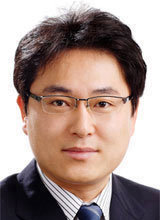Vietnamese football and individualism
Vietnamese football and individualism
Posted December. 13, 2019 07:38,
Updated December. 13, 2019 07:40

When Park Hang-seo and his Vietnamese footballers won the championship of the Southeast Asian Games, the face of Guus Hiddink instantly came across my mind, the maestro who led Korean national football team to the semi-finals of the 2002 World Cup and a mentor who gave much inspiration to his then chief coach Park Hang-seo. But Hiddink was sacked in September as manager of Chinese Olympic football team after being defeated by Park’s Vietnam. What divided the fortunes of the two men?
Professor Jang Won-jae, who wrote about the success of Vietnamese football in his book, cites Park’s ability to bring the men together as a crucial factor. Park didn’t allow his players to use their cellphone at dinner and encouraged them to talk with each other. Those who didn’t follow the rule were fined. An ability to mingle with teammates was a merit as important as actual football skills. He always respects his players, which in turn earn him their respect. Teamwork has improved; so does the team’s strategic competence. After the Vietnamese football team tasted the sweet victory, its winning streaks worked out.
Modern football is growing ever more strategically complicated, and it is using much more space, so the fate of the game is swayed by communications and cooperation among players. The success of Vietnamese football can be found in the same vein. European big leaguers such as Son Heung-min never forgets to give thumbs-up to his teammates after finding the net because he knows that it takes not one but 11 men to win the game.
This explains why Chinese football is floundering. “Chinese football is a mess. They simply don’t know how to work together,” Alibaba founder Jack Ma recently said about his country’s football team in a public interview. In fact, Chinese players play alone and blame others. When China lost to Syria for World Cup qualification last month, Lei Wu, the left winger of the Chinese national football team, said his team lost owing to “sloppy defense.” It is quite obvious how busy other younger Chinese players would be passing the buck to their teammates.
Even Hiddink could not change this culture. Chinese footballers considered the Dutch manager not as a leader but as a technician. They refused to understand his building process, only demanding short term success. It was different from Korean football circles, which waited for one and a half years when Hiddink was training Korean players for the 2002 World Cup. In China, football is still considered merely as skill, not culture. Even Marcello Lippi, former Italian footballer who managed Chinese team for a while, gave up and quit.
This is not confined to Chinese football. Many South Korean companies are also having a difficult time in dealing with the individualism of Gen Z. Life in the real world is becoming as complex as modern football. Cooperation is ever more important as most problems require a collective effort. How we tackle individualism will decide our path between Vietnamese and Chinese football.
The case of Vietnamese football tells us about the importance of analyzing the cause and the effect of individualism. Sports psychologists say that in the past, Vietnamese players used individualism as a form of defensive mechanism, thereby justifying their poor performance not as a lack of competence but as a lack of mere effort. In other words, their individualism was not cause for failure, but an outgrowth of lethargy. This means that we need to take a step back and look inside of our mind before dismissing individualism simply as social evil.
touch@donga.com







